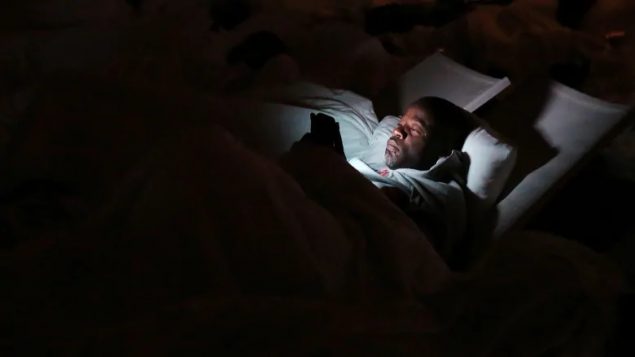Most of us–certainly a very great many of us–have been there: struggling to fall asleep, struggling to stay asleep--tossing, turning, venting–as the bedside alarm clock moves relentlessly forward.
It is neither a pleasant nor a healthy experience.
And repercussions abound the next day–for your family, for your co-workers and–more likely than not–for the place where you work.

It’s no fun going to work after a long night of no sleep. Nor is it productive or healthy. (Chun Photographer/Shutterstock)
Zombies are not a particularly appealing–or productive–tribe.
Fortunately, there are a lot of people studying why those long, restless nights occur and what to do about them.
Many of them are currently in Vancouver at the World Sleep Congress.
One of them is Dr. Ram Randhawa, a psychiatrist at the University of British Columbia’s Sleep Disorders Program, who delivered a paper on the use of medications for insomnia to the congress on Saturday.
I spoke by phone with Dr. Randhawa at his office at Vancouver General Hospital on Tuesday.
Listen






For reasons beyond our control, and for an undetermined period of time, our comment section is now closed. However, our social networks remain open to your contributions.